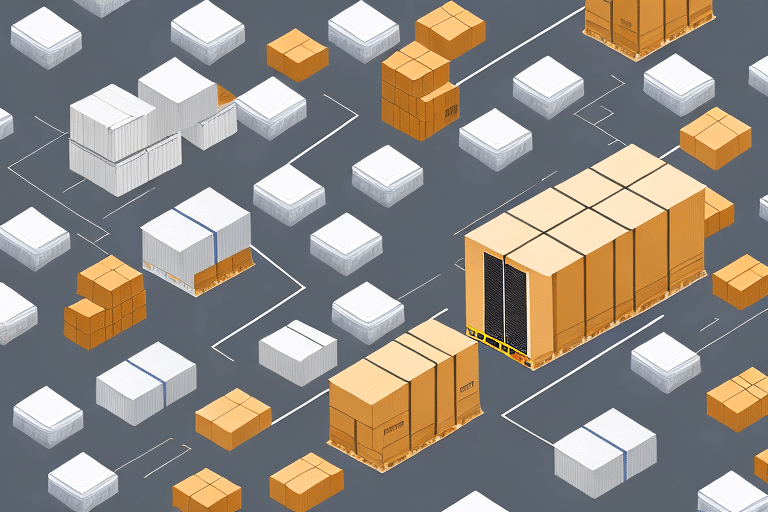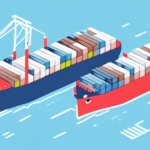What Is a 3PL and How Third-Party Logistics Providers Benefit Ecommerce Brands
When it comes to running an ecommerce business, one of the most critical aspects to consider is logistics. From inventory management to shipping, logistics can make or break your business operations. That's why many ecommerce brands turn to third-party logistics providers, or 3PLs, for support. In this article, we'll take a deep dive into the world of 3PLs and explore how they benefit ecommerce brands.
Understanding Third-Party Logistics (3PL)
A third-party logistics provider, or 3PL, is a company that offers outsourced logistics services to other businesses. These services may include warehousing, transportation, inventory management, and more. Essentially, 3PLs handle the logistics operations of a business, allowing the business to focus on other aspects of their operations, such as marketing and product development.
Key Services Offered by 3PLs
- Warehousing and inventory management
- Transportation and shipping
- Order fulfillment
- Customs brokerage
- Reverse logistics
Benefits of 3PL for Ecommerce Brands
Cost Savings and Efficiency
Partnering with a 3PL can lead to significant cost savings. According to a Forbes report, companies that use 3PLs can reduce their logistics costs by up to 20%. This is achieved through economies of scale, optimized shipping routes, and reduced labor costs.
Scalability and Flexibility
As a business grows, its logistics needs may become more complex and require additional resources. 3PLs provide the flexibility to scale operations quickly without the need to invest in new infrastructure or personnel. This adaptability is crucial for ecommerce brands experiencing seasonal spikes or rapid growth.
Access to Expertise and Technology
3PL providers often have specialized knowledge and advanced technology solutions, such as warehouse management systems (WMS) and transportation management systems (TMS). These tools enhance operational efficiency, enable real-time tracking, and improve overall supply chain visibility.
Choosing the Right 3PL Provider
Assessing Business Needs
Before selecting a 3PL provider, it's essential to evaluate your business's specific logistics requirements. Consider factors such as the type of products you sell, order volume, shipping destinations, and any special handling needs.
Evaluating Technology Capabilities
Ensure that the 3PL provider offers technology solutions that align with your business needs and can integrate seamlessly with your existing systems. Advanced technology facilitates better inventory management, order tracking, and data analytics.
Strategic Location
The location of a 3PL’s warehouses can impact delivery times and shipping costs. Choosing a provider with facilities near your major customer bases can enhance delivery speed and reduce transportation expenses.
Overcoming Challenges with 3PL
Ensuring Clear Communication and Collaboration
Effective communication between your business and the 3PL provider is crucial for smooth operations. Establish regular meetings, set clear expectations, and use collaborative tools to maintain alignment on business goals.
Visibility and Transparency in the Supply Chain
Having visibility into the entire logistics process is essential for identifying and addressing issues promptly. Implementing real-time tracking and reporting systems can improve transparency and allow for better decision-making.
The Role of Technology in 3PL
Warehouse Management Systems (WMS)
WMS technology streamlines warehouse operations, including inventory tracking, order fulfillment, and labor management. This leads to increased efficiency and accuracy in handling orders.
Data Analytics
Data analytics tools help 3PLs optimize shipping routes, forecast demand, and manage inventory levels more effectively. According to a Supply Chain Digital report, businesses leveraging data analytics in logistics see a 15% improvement in operational efficiency.
Future Trends in 3PL for Ecommerce Brands
Artificial Intelligence and Automation
AI and automation are revolutionizing the logistics industry. From automated warehouses to predictive analytics, these technologies enhance efficiency and reduce human error.
Sustainability Initiatives
With increasing emphasis on environmental responsibility, 3PL providers are adopting sustainable practices. This includes optimizing transportation routes to reduce carbon emissions and utilizing eco-friendly packaging materials.
Best Practices for Working with 3PL
- Prioritize Communication: Maintain open lines of communication to address issues promptly.
- Monitor Key Performance Indicators (KPIs): Regularly track metrics to assess the performance of your 3PL partner.
- Ensure Transparency: Clearly define service level agreements and costs to avoid misunderstandings.
Conclusion
Third-party logistics providers offer a range of benefits to ecommerce brands, from cost savings and increased efficiency to improved customer satisfaction. When outsourcing logistics operations, businesses should prioritize communication and collaboration, and ensure that their 3PL provider has the necessary expertise and technology capabilities to meet their needs. By following best practices and embracing future trends and innovations, ecommerce brands can continue to improve their logistics operations and succeed in the competitive ecommerce landscape.






















